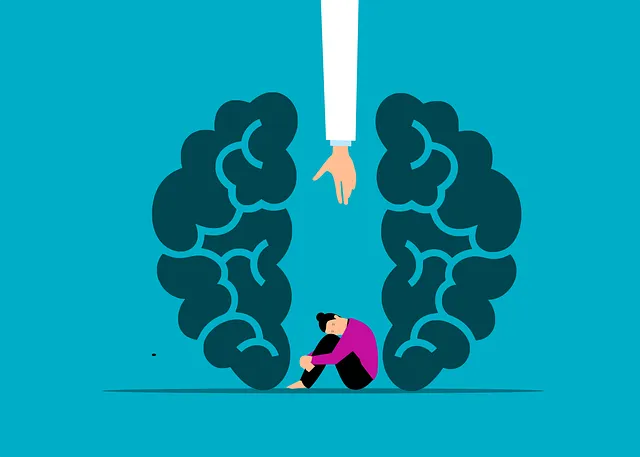The Longmont Kaiser Permanente mental health center utilizes flexible Longmont Kaiser Permanente mental health center visiting hours to offer diverse community outreach programs, bridging healthcare gaps and promoting mental wellness. Through workshops, educational sessions, Mental Wellness Coaching, and Social Skills Training, the center enhances mental health literacy, develops coping skills, breaks down stigmas, and builds community resilience. This holistic approach, tailored to cultural sensitivities, has significantly improved mental wellness outcomes in Longmont. Continuous improvement is driven by qualitative assessments, strategic planning, and tracking key performance indicators (KPIs).
Community outreach programs play a pivotal role in enhancing access to healthcare services, particularly in mental health. This article explores these initiatives, highlighting successful models like the Longmont Kaiser Permanente Mental Health Center and its innovative visiting hours. We delve into strategies for designing impactful programs and emphasize evaluation methods to measure success. By learning from established practices, such as Longmont’s approach to community engagement, healthcare organizations can improve patient outcomes and foster stronger connections within their communities.
- Understanding Community Outreach: Its Role and Impact
- Longmont Kaiser Permanente Mental Health Center: A Model for Service
- Designing Effective Visiting Hours and Programs
- Measuring Success: Evaluation and Continuous Improvement Strategies
Understanding Community Outreach: Its Role and Impact

Community outreach programs play a pivotal role in connecting healthcare services with populations that may face barriers to access. Such initiatives, like those offered by the Longmont Kaiser Permanente mental health center during visiting hours, aim to foster mental wellness and overall well-being. By reaching into communities, these programs address not just individual needs but also contribute to societal improvements in mental health literacy and coping skills development.
Understanding community outreach involves recognizing its impact on promoting Stress Reduction Methods and building resilience within diverse groups. Through creative strategies, including workshops, educational sessions, and personalized Mental Wellness Coaching Programs Development, outreach workers empower individuals with effective coping skills. This proactive approach not only alleviates immediate concerns but also equips people to navigate life’s challenges more effectively, ultimately enhancing community resilience and overall mental health outcomes.
Longmont Kaiser Permanente Mental Health Center: A Model for Service

The Longmont Kaiser Permanente Mental Health Center stands as a shining example of community outreach programs in action. This center offers a comprehensive range of services tailored to meet the mental health needs of the local community. With flexible visiting hours, it ensures accessibility for individuals seeking support. The facility provides not only traditional therapy sessions but also innovatively incorporates Mental Wellness Coaching Programs and Social Skills Training to cater to diverse patient needs.
Through its commitment to public awareness campaigns, the center educates and engages the community, breaking down stigma associated with mental health. This holistic approach has significantly contributed to improved mental wellness in Longmont, inspiring similar initiatives across the region. The center’s success highlights the power of community-focused programs, demonstrating how accessible care and education can transform lives and foster a healthier society.
Designing Effective Visiting Hours and Programs

At the Longmont Kaiser Permanente mental health center, effective visiting hours and programs are designed to provide a safe and supportive environment for both patients and visitors. These include structured scheduling that allows for consistent access while ensuring patient privacy and confidentiality. Visiting hours are tailored to accommodate various patient needs, with dedicated times for individual therapy, group sessions, and recreational activities. Mental health professionals play a crucial role in facilitating these interactions, offering Crisis Intervention Guidance and utilizing Mindfulness Meditation techniques to enhance communication and reduce stress.
Additionally, Risk Management Planning is integrated into the program to mitigate potential hazards. This involves rigorous training for staff on de-escalation strategies, active listening, and crisis debriefing. By fostering a calm and controlled atmosphere, these measures not only improve patient outcomes but also contribute to the overall well-being of mental health professionals.
Measuring Success: Evaluation and Continuous Improvement Strategies

Measuring success is a crucial component of any community outreach program, especially when addressing mental health concerns within diverse populations. Evaluation strategies should go beyond simple attendance numbers and include qualitative assessments to capture the impact on participants’ lives. At the Longmont Kaiser Permanente mental health center, visiting hours are strategically planned to align with cultural sensitivities, ensuring accessibility for various communities. This approach, coupled with regular feedback from participants, provides valuable insights into the program’s effectiveness.
Implementing a Community Outreach Program requires a commitment to continuous improvement. By analyzing participant feedback and tracking key performance indicators (KPIs), organizations can adapt their strategies to better serve the needs of different cultural groups. Incorporating practices like Cultural Sensitivity in Mental Healthcare Practice ensures that mental wellness initiatives resonate with diverse audiences, fostering trust and encouraging open dialogue. Additionally, providing Mental Wellness Journaling Exercise Guidance as part of the outreach can offer personalized support and empower individuals to take charge of their mental health journeys.
Community outreach programs, as demonstrated by the successful model at the Longmont Kaiser Permanente Mental Health Center, play a pivotal role in enhancing access to healthcare services. By implementing well-structured visiting hours and tailored programs, organizations like this can significantly impact local communities. The strategies outlined, including evaluation methods, ensure continuous improvement, fostering an environment where mental health support is accessible, effective, and continuously evolving to meet diverse community needs. Longmont Kaiser Permanente’s approach serves as a blueprint for other healthcare facilities aiming to improve their outreach initiatives, ultimately leading to better patient outcomes and stronger, healthier communities.






